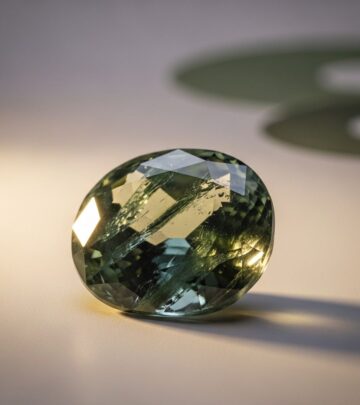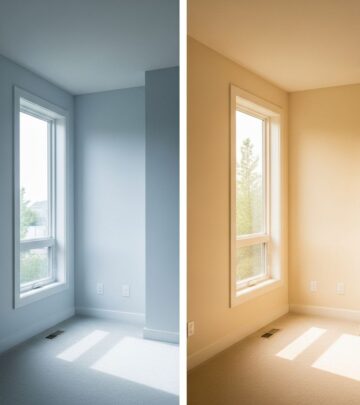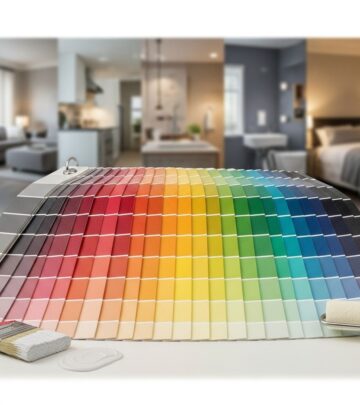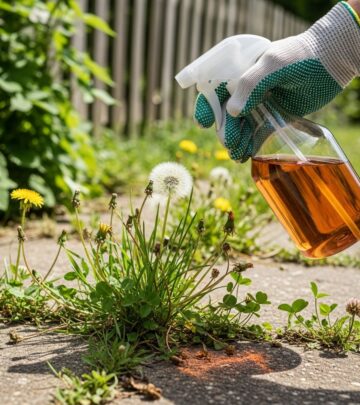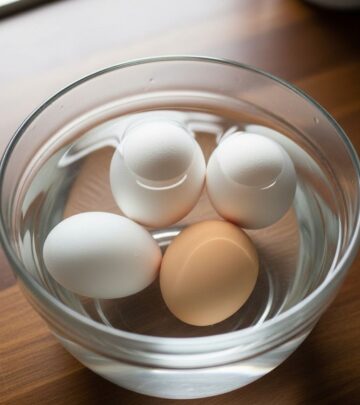How to Clean a Shower: Proven Methods for a Sparkling Bathroom
Enjoy gleaming fixtures and grout that resist stains with eco-friendly upkeep advice.
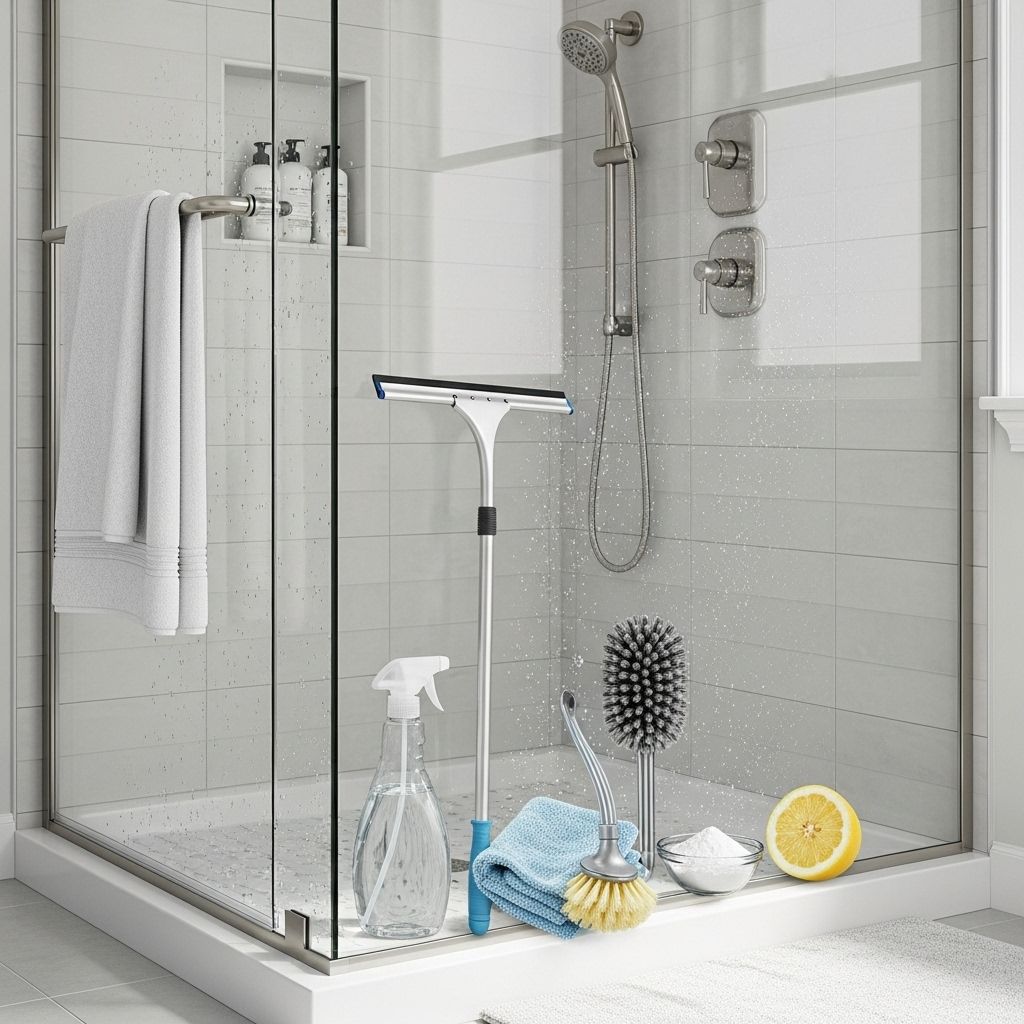
How to Clean a Shower: Expert Advice for Every Surface
Regular shower cleaning not only keeps your bathroom looking fresh, but also prevents the build-up of soap scum, mildew, and hard water stains. Whether you have a tiled shower, glass doors, or a combination of both, this guide provides a comprehensive approach to tackling each surface with proven cleaning solutions and practical tips.
Why Regular Shower Cleaning is Essential
- Prevents soap scum and mineral build-up, which can stain and dull surfaces.
- Reduces mold and mildew growth, protecting your family’s health.
- Extends the lifespan of fixtures and grout, preserving your bathroom’s value and appearance.
- Makes deep cleaning faster and easier when done weekly.
Step-by-Step Shower Cleaning Guide
Step 1: Gather Your Cleaning Products
- Microfiber cloths, sponges, or eco-friendly Swedish dish cloths
- Nylon scrub brushes (preferably with a diamond-shaped head for corner reach)
- Spray bottle for DIY solutions
- Liquid dish soap
- White distilled vinegar
- Baking soda (for stubborn stains)
- Commercial shower cleaner (if needed)
- Rubber gloves to protect your hands
Step 2: Clean Shower Walls and Tile
Shower walls and tiles accumulate soap scum, hard water spots, and mildew. The cleaning method depends on the material:
- For ceramic and porcelain tiles: Mix 1/2 cup white distilled vinegar with a gallon of warm water in a spray bottle. Spray generously over the tiles and grout, allow it to sit for 10-15 minutes, then scrub with a nylon brush. Rinse thoroughly with warm water.
- For granite or marble surfaces: Avoid acids (like vinegar or lemon). Use a mild dish soap solution; apply with a soft cloth, rinse well, and dry immediately to prevent streaking.
- For stubborn stains on matte finishes: Make a paste of baking soda and water, apply directly to the stain, allow it to sit for 10 minutes, then scrub gently and rinse.
Quick Reference Table: Which Cleaners to Use
| Surface Type | Recommended Cleaner | Method |
|---|---|---|
| Ceramic/Porcelain Tile | Vinegar/Water Solution | Spray, wait, scrub, rinse |
| Granite/Marble | Mild Dish Soap & Water | Wipe, rinse, dry |
| Matte Finishes | Baking Soda Paste | Apply, sit, scrub, rinse |
Step 3: Clean Shower Doors
Glass shower doors are prone to soap scum and water spots. Regular weekly cleaning prevents tough build-up.
- Mix 2 parts white vinegar to 1 part dish soap in a spray bottle.
- Spray the solution on glass surfaces and let it sit for 20-30 minutes.
- Wipe with a microfiber cloth or non-abrasive sponge, then rinse with warm water.
- Dry with a clean cloth to prevent water spots.
- For hard-water stains, repeat and use gentle scrubbing as needed.
Pro Tips: Keeping Glass Doors Cleaner Longer
- Squeegee after every shower. This reduces mineral deposits and streaks.
- Keep doors open to air dry. Good ventilation prevents mildew.
- Apply a commercial glass protector once a month for added shine and resistance.
Step 4: Tackle Grout and Caulk
Grout lines and caulk tend to harbor mold and soap residue.
- Spray vinegar/water solution directly onto grout and caulk.
- For mildew: Let solution sit for 15 minutes, then scrub well with a small brush.
- Rinse thoroughly and wipe dry. For persistent stains, use a baking soda paste and repeat.
- Inspect caulk regularly; if mold persists, consider replacing old caulk to maintain a hygienic seal.
Step 5: Clean Drains and Shower Floors
Shower floors accumulate grime, soap deposits, and hair.
- Remove visible debris from the drain cover before you start.
- Apply your shower cleanser or vinegar solution generously. Focus on corners and textured floor areas.
- Use a stiff brush to scrub, paying attention to grout lines and around the drain.
- Finish by rinsing thoroughly with hot water to flush away loosened dirt.
Step 6: Clean Shower Fixtures and Accessories
- Wipe faucets, handles, and showerheads with a soft cloth dipped in soapy water.
- If fixtures show water spots, rub with a cloth moistened in vinegar.
- For limescale on showerheads: consider detaching and soaking the head in vinegar for 30 minutes, then scrub gently.
- Rinse and dry all metal parts to maintain shine and prevent corrosion.
DIY Cleaning Solutions and Store-Bought Alternatives
Most shower surfaces respond well to homemade, eco-friendly cleaning solutions. However, tough stains may require a commercial product.
- DIY Vinegar Solution: Mix vinegar and water (1:1 for tough zones) for tiles and glass.
- Baking Soda Paste: Mix baking soda with just enough water to form a paste.
- Dawn Dish Soap: Highly effective when paired with vinegar for greasy or sticky buildup.
- Bleach: Use sparingly if absolutely necessary, and NEVER mix bleach with vinegar or other acids. Avoid on colored grout or natural stone.
- Commercial Bathroom Cleaners: Useful for heavy build-up, but read labels carefully, especially for marble, granite, or colored tile.
Simple Weekly Shower Cleaning Routine
To keep your shower sparkling with minimal effort, follow this schedule:
- Daily: Squeegee doors and walls post-shower.
- Weekly: Spray surfaces with cleanser, focus on trouble spots, rinse and dry thoroughly.
- Monthly: Deep clean grout, drains, and fixtures, inspecting for mold or wear.
Extra Tips for Maintenance and Prevention
- Use a shower caddy to keep bottles off floors and reduce slime and soap-scum accumulation.
- Improve bathroom ventilation with an exhaust fan or open window after showering.
- Repair cracked grout or worn caulk to prevent water damage and mold growth.
- Wash shower curtains and liners monthly. Most are machine washable; check the label.
- Replace sponges and brushes regularly to avoid spreading bacteria.
Frequently Asked Questions (FAQs)
Q: How often should I deep clean my shower?
A: Deep cleaning is recommended once a month for best results, while basic maintenance should occur weekly.
Q: Can vinegar damage my shower surfaces?
A: Vinegar is safe for glass, ceramic, and porcelain, but should not be used on marble or granite as acids may erode natural stone.
Q: What’s the easiest way to prevent mold in the shower?
A: Increase ventilation, squeegee surfaces after use, and dry walls and doors after each shower to keep mold at bay.
Q: How do I remove hard water stains?
A: Use a mix of vinegar and dish soap on glass and tile surfaces. For tough calcium deposits, allow the solution to sit, scrub gently, and rinse thoroughly.
Q: Should I use bleach in my shower?
A: Bleach can kill mold and mildew, but only use it for persistent issues. Avoid using bleach on colored grout or stone surfaces, and never mix bleach with vinegar or other acids.
Q: What cleaning tools should I have for shower maintenance?
- Nylon scrub brush
- Microfiber cloths
- Spray bottle for solutions
- Squeegee
Final Thoughts: Achieve a Spotless Shower Every Time
Effective shower cleaning combines routine maintenance, the right products for each surface, and preventative steps to minimize mold and hard water build-up. Whether you prefer DIY solutions or store-bought cleaners, adopting these strategies will keep your bathroom sparkling, hygienic, and inviting.
References
Read full bio of medha deb

